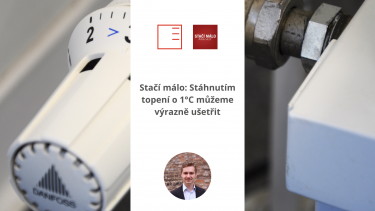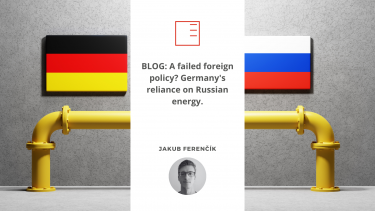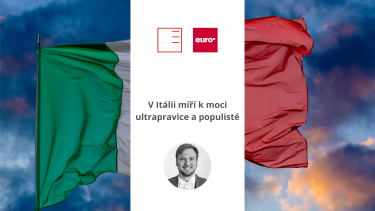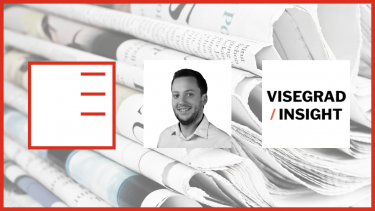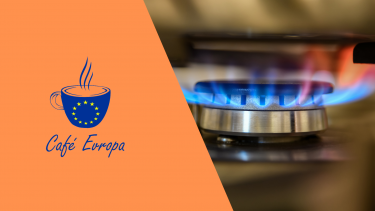Stačí málo: By turning down the heating by 1°C, we can save significantly
Our researcher Michal Hrubý was a guest on the podcast Stačí málo, presented by Generali Česká pojišt'ovna. He answered questions about the energy sector and the energy crisis. In the podcast you will learn, among other things, how to manage energy efficiently in households and what mistakes to avoid if you want to save money on energy.
Zjistit víceBLOG: A failed foreign policy? Germany's reliance on Russian energy.
Jakub Ferenčík napsal blog na téma německé závislosti na ruském plynu. V příspěvku rozebírá, že původně pozitivní záměr německé vlády, tedy skrze ekonomickou integraci připoutat Rusko k Evropě za účelem politické stability, se Evropě vymstil a vyústil v pravý opak. Zmiňuje roli bývalého kancléře Gerharda Schrödera, který výrazně přispěl k německé závislosti na dodávkách z Ruska, a okolnosti spojené s výstavbou plynovodu Nord Stream 2. V druhé části pak analyzuje odkaz bývalé kancléřky Merkelové a její selhání vnímat ruské expanzionistické tendence.
Zjistit více
TA3: Italy's elections turned out as expected. The Brothers of Italy party led by Giorgia Meloni won by a convincing margin
One of the other evaluation of the Italian elections by our research associate Alexandre Lagazzi. In this interview, he discusses the election results, the future of Italy after the elections, which parties will form the Italian government, and whether or how support for Ukraine will continue.
Zjistit více
Týdeník Euro: The far-right and populists are coming to power in Italy
Due to the premature fall of Draghi's government, Italians will go to the polls on Sunday 25 September. At stake, among other things, is how Rome will deal with the €200 billion covid bailout. Our research associate Alexandre Lagazzi has commented on the current situation.
Zjistit více
EURO: Uncertain heating season opens the return of coal
Our senior research fellow Kateřina Davidová commented for the weekly magazine Euro on the topic "Uncertain heating season opens the return of coal". In her commentary, she discusses Europe's energy self-sufficiency and, among other things, the current and future state of the Czech energy sector without coal.
Zjistit více
RTVS: Some EU countries are returning to coal energy
The return of coal as a source of electricity production is a direct consequence of the Russian aggression in Ukraine. The resumption of coal-fired power stations in Europe means an increase in harmful emissions, jeopardizing the EU's climate targets. EUROPEUM Institute researcher Kateřina Davidová spoke in detail about the energy crisis in Europe, the measures that Brussels is taking to prevent countries from turning to sources of electricity such as coal, and the compensatory measures taken by member states.
Zjistit více
Visegrad Insight: Slovenia’s New Government Rejects ‘Orbán’s Visegrad’
The head of our Brussels office, Žiga Faktor, commented for Visegrad Insight. Žiga Faktor points out that the centre-left opposition parties united in an informal coalition known as the "Constitutional Arch Coalition" have not coordinated as closely as the opposition parties in the Czech Republic, which have formed two coalition blocs, the centre-right SPOLU and the centrist PirStan.
Zjistit více
INVITATION: Café Evropa online: The future of European energy - how to ensure stable and clean energy sources without Russia?
We would like to invite you to the Café Evropa debate on 21 March at 17:30 on the topic "The future of European energy - how to ensure stable and clean energy sources without Russia?". The Russian invasion of Ukraine has, among other things, further fuelled the question of energy security in the Czech Republic and the EU and the future of energy in our country. The current security situation points to the need to diversify energy sources as soon as possible, i.e. to secure energy supplies from different regions and countries in order to avoid excessive dependence on Russia. There are also views in the public debate that coal extraction could be temporarily increased, which would enable some countries to cover any shortfalls in resources. Is a complete or even partial halt of Russian gas supplies to the Czech Republic and the European Union a realistic option? What impact would this have on our energy security? How much further increase in energy prices can we expect in this case? How should EU countries react and help households and industry cope with the expected increase? Could a possible temporary increase in coal extraction mean a return to fossil fuels and the end of the EU's climate ambitions? Or could the current problematic situation further accelerate the energy transition?
Zjistit víceNavigating the Indo-Pacific: Dealing with Geopolitical and Security Shifts in the Region
We would like to invite you to the in person debate called "Navigating the Indo-Pacific: Dealing with Geopolitical and Security Shifts in the Region" which will be held at EUROPEUM Institute for European Policy, Staroměstké náměstí 4/1, Prague (Room "Minuta") on Friday, March 18 at 15:00.
Zjistit více
Deník N: The Green Deal is more important than ever, says the Decarbonising Automotive Transport conference
Our researcher Michal Hrubý attended the conference on Decarbonisation of Automotive Transport where he took part in the debate. We are on the threshold of a decision about the future of Czech car transport. Demand for electromobility is growing exponentially globally, as is the development of battery technology. In the future, these could become value-added products that will kick-start our economy and return the Czech Republic to a leading position in the investment environment. According to representatives of the European Parliament, the state administration, the automotive industry and independent experts on electromobility, it is now important for the Czech Republic to leave the scepticism of change behind and start educating and preparing for the decarbonisation of automotive transport. Not only for the environmental impact, but especially for the future competitiveness of the sector. This was stated in a debate at the Decarbonisation of Automotive Transport conference organised by EUROPEUM Institute for European Policy on Tuesday 1 March.
Zjistit více
Staroměstské náměstí 4/1
Praha 1 - Staré Město
110 00
tel.: +420 212 246 552
email: europeum@europeum.org
https://www.europeum.org
